People with dry skin struggle to keep their skin hydrated, especially in hot and dry environments. Dry skin can feel rough, flaky, and tight and is also prone to developing tiny cracks, which may lead to infections and skin inflammation.
Age, genetics, and environmental factors contribute to excessive dryness and increased sensitivity. Luckily, there are effective methods to restore moisture, prevent water loss, and keep the skin hydrated and protected.
This article provides the best skincare routine for dry skin that you can start implementing today.
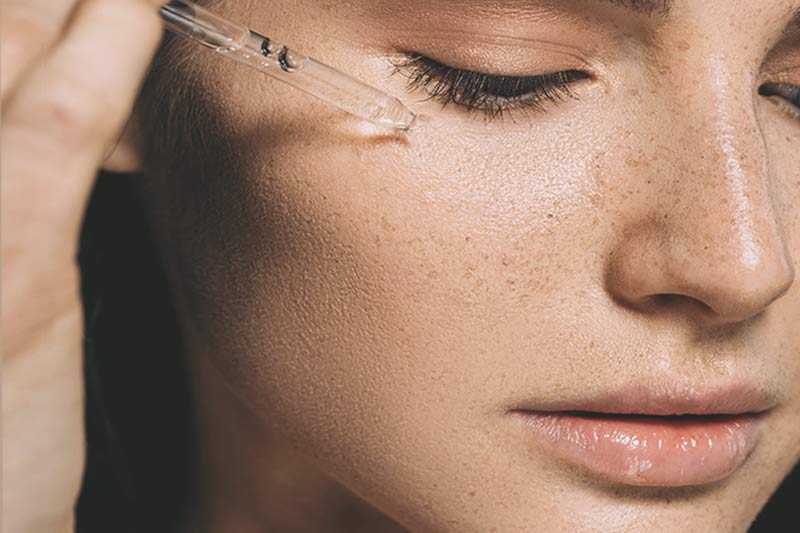
Skincare Routine for Dry Skin
Regardless of what causes it, you can take actionable steps to treat dry skin and restore a healthy glow. Check out these easy-to-follow steps and create a unique skincare routine for your skin type.
Morning Skincare Routine for Dry Skin
Day products should protect your skin from external factors such as pollution, free radical damage, and sunlight. Choose products with anti-pollution skincare ingredients to help minimize oxidative stress, photoaging, and premature wrinkle formation.
The following steps can help you tailor a perfect morning routine:
Step 1: Use a Cleanser
Cleansers prepare the skin for the day by removing excess sebum (oil), dead skin cells, and other impurities. Dry skin calls for a gentle and hydrating face wash with ingredients that prevent dryness by helping balance moisture levels, such as the following:
Avoid harsh ingredients that dry out the skin, such as alcohol, and intense exfoliators, like glycolic and salicylic acid. The only alpha-hydroxy acid you should use is lactic acid, as this ingredient is known for hydrating the skin without causing irritation.
Cream, oil, and gentle gel cleansers are suitable for dry skin. Our favorite morning cleanser for dry skin is ALASTIN Gentle Cleanser.
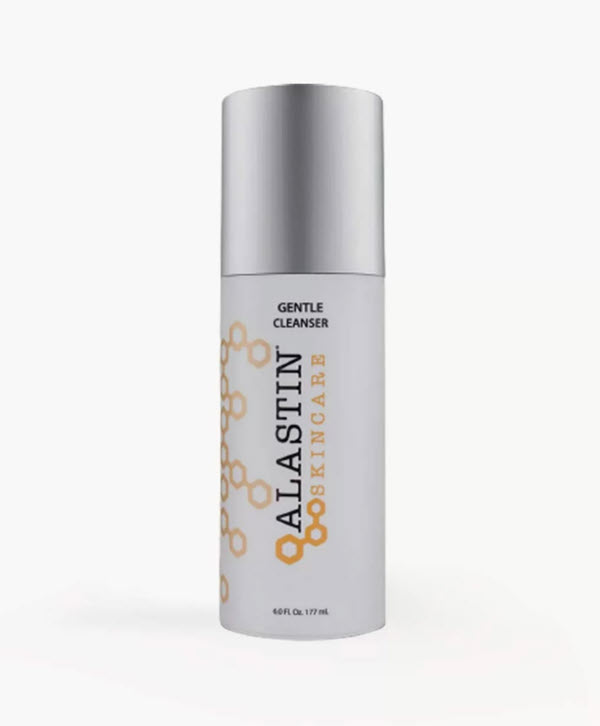
Step 2: Tone the Skin
Toners remove cleanser residue, help balance the skin’s pH, and enhance product absorption. Their pore-tightening effect minimizes potential breakouts caused by clogged pores.
Choose gentle, alcohol-free toners with properties that are calming (e.g., rose water, aloe vera), hydrating (e.g., hyaluronic acid, glycerin), and soothing (e.g., botanical extracts). Micellar water is also a suitable alternative to hydrating toners.
Avoid alcohol-based toners with alpha hydroxy acids (AHAs), artificial fragrances, witch hazel, and other harsh ingredients, as they can dehydrate and irritate the skin.
Note: Read about cleansers vs. toners to learn more about their respective benefits.
Step 3: Apply a Serum
Serums contain highly concentrated ingredients that target specific skin concerns. Incorporating antioxidants into your morning routine can help prevent damage caused by free radicals and the sun.
Look for the following ingredients:
- Vitamin C - Provides powerful antioxidant protection, brightens dull skin, and prevents hyperpigmentation.
- Growth factors - Reduce cell DNA damage, repair damaged skin, maintain firmness and elasticity, and provide added protection.
- Hyaluronic acid – Boosts hydration by retaining up to 1,000 times its weight in water.
- Niacinamide – Increases circulation, boosts the hydrating action of moisturizers, and reduces enlarged pores and dark spots.
Osmosis Replenish MD Antioxidant Infusion Serum deeply hydrates the skin, protects it against environmental stressors, and calms inflammation with seventeen potent antioxidants.
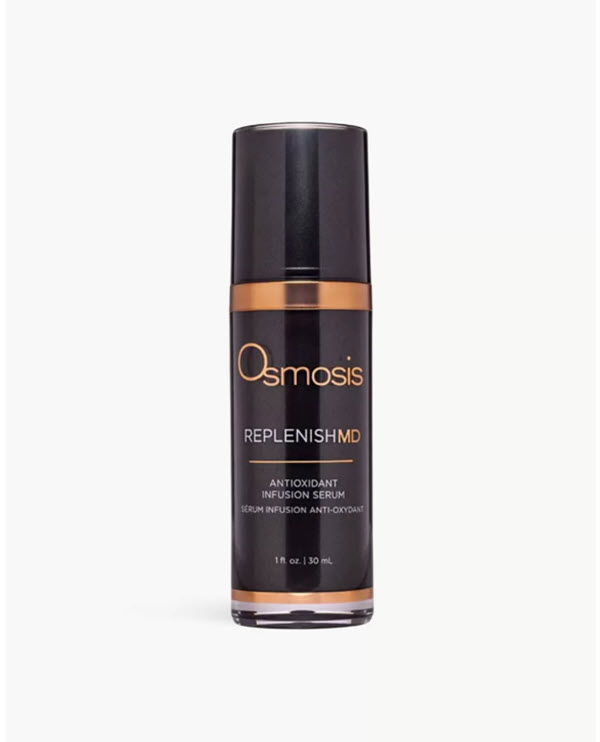
Step 4: Use an Eye Cream
Face creams are usually unsuitable for the eye area because the skin under your eyes is thinner, more sensitive, and delicate than the rest. Choose a product that will soothe, hydrate, and protect while minimizing the appearance of dark circles and wrinkles.
iS Clinical Youth Eye Complex provides intense hydration with copper tripeptide growth factors and hyaluronic acid and reduces the appearance of fine lines and wrinkles.
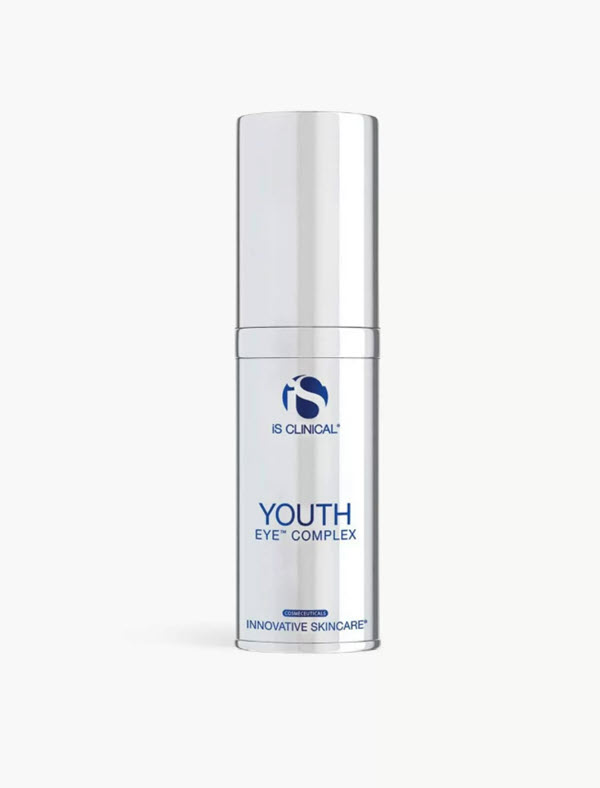
Note: Discover how eye serum and eye cream differ and which one to choose.
Step 5: Apply Face Oil
Face oil contains nourishing ingredients which enhance hydration and replenish the skin. Oils help preserve the skin’s natural lipid barrier to prevent dryness, flakiness, and dehydration.
Lighter face oils are easily absorbed and should be applied before a moisturizer. Dermatologists recommend the following oils for dry skin:
- Argan oil – Rich in oleic acid and linoleic acid that keep the skin moisturized and strengthen the barrier.
- Jojoba oil – Supports the protective barrier and helps the skin stay hydrated by reducing transepidermal water loss.
- Rosehip oil – Its fatty acids hydrate dry, itchy skin, while its antioxidants deeply penetrate for added nourishment.
- Avocado oil – This potent anti-inflammatory skincare ingredient alleviates inflammation and increases moisture levels with vitamins A and E and potassium.
Osmosis MD Nourish Avocado Facial Oil contains cold-pressed, organic avocado, which penetrates all layers to prevent moisture loss and protect against environmental aggressors.
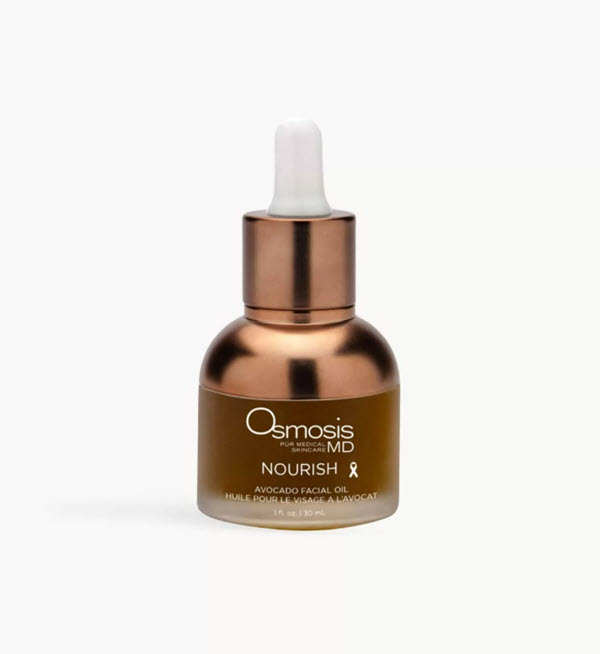
Step 6: Moisturize the Skin
Moisturizers are essential for all skin types as they help seal in hydration for a glowing look. Dry skin benefits the most from moisturizers containing hyaluronic acid, ceramides, B vitamins, and glycerin.
Choose a gentle formulation and avoid irritants like perfumes. The ideal day cream has a lightweight consistency, so it can penetrate your skin quickly and not feel heavy on your face.
We recommend iS Clinical Active Serum, which provides moisture while deeply repairing dry skin.
Step 7: Use a Sunscreen
Ultraviolet radiation can damage the skin, cause photoaging, and lead to prematurely aged skin, which is why protection is essential. If your daytime moisturizer doesn’t contain a mineral SPF, apply a sunscreen product on top. Look for a product with an SPF 30 or higher with mineral ingredients such as zinc oxide or titanium dioxide. Reapply every two hours.
We recommend Alastin SilkShield All Mineral Sunscreen SPF 30. It contains ingredients that support the skin's natural hydration and barrier function, with antioxidant and anti-irritant properties suitable for sensitive skin.
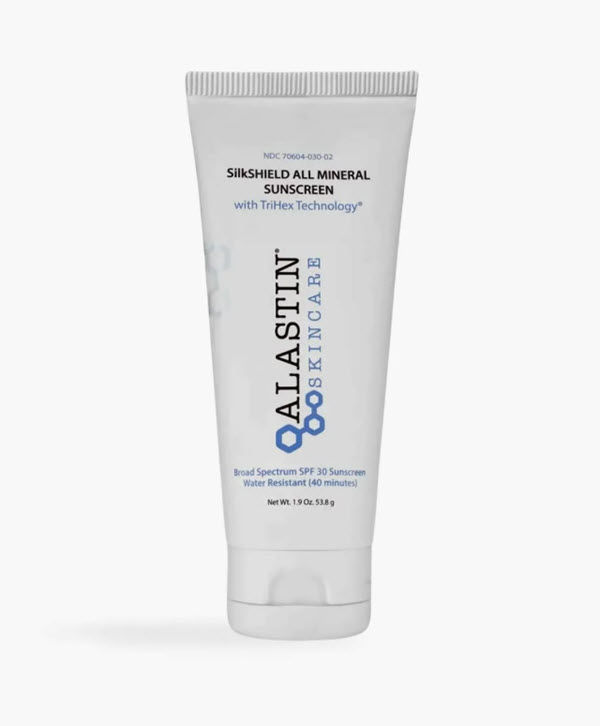
Note: Learn how to choose sunscreen suitable for your skin type.
Evening Skincare Routine for Dry Skin
Your skin may still feel tight, flaky, and itchy at the end of a stressful day. A proper night skincare routine can set you up for the next day and provide much-needed relief after a busy day.
Nighttime skincare products should help your skin recover by promoting fibroblast activity and cellular turnover. The ingredients should also deeply hydrate all skin layers and reduce signs of skin inflammation, such as redness, itchiness, or tenderness.
Follow these guidelines to create your evening skincare routine:
Step 1: Remove Makeup
Start your nighttime skincare routine with an oil-based makeup remover before using an all-purpose cleanser. This step is essential as it will remove traces of makeup, sunscreen, and other products. Use gentle cleansing balms and massage the product into the skin with cotton pads to start the routine.
iS Clinical Cream Cleanser is a no-rinse product with a soothing, rich texture and is so gentle that it can even be used as an eye makeup remover.
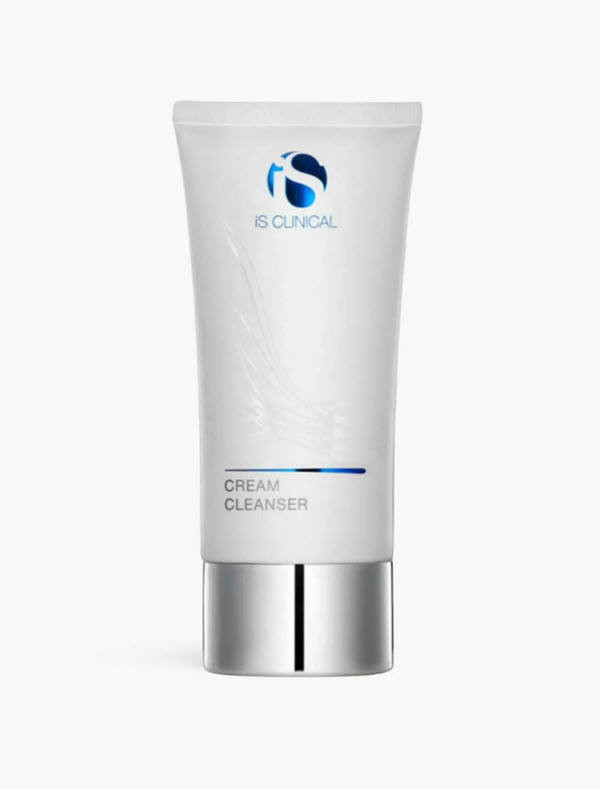
Step 2: Use a Cleanser
Cleansers are designed to remove all impurities accumulated during the day, including products applied earlier, dead skin cells, dirt, pollutants, and oil.
Depending on your skin’s sensitivity, you can combine a water-based cleanser with an oil-based makeup remover or double cleanse with an oil-based cleanser and a cream cleanser to enhance product absorption.
Our favorite evening cleanser for dry skin is ALASTIN Ultra Calm Cleansing Cream.
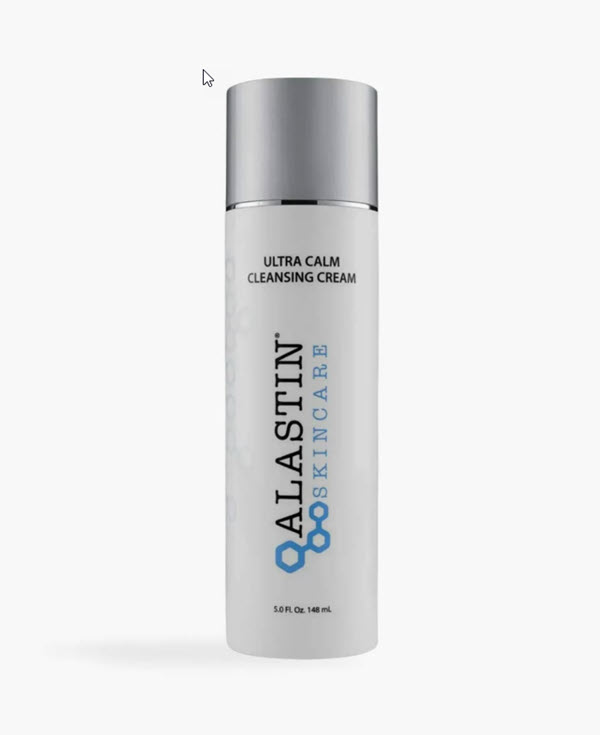
Step 4: Exfoliate the Skin
Chemical exfoliation removes dead skin cells, allowing the active ingredients in serums and moisturizers to penetrate deeper into the skin. People with dry skin should go for products with gentle ingredients such as lactic acid and plant enzymes.
Exfoliators are typically used at night because exfoliating enzymes can lead to sunburn if used during the day. We recommend exfoliating once a week because daily exfoliation dehydrates and damages the skin.
Step 5: Apply a Face Mask
Face masks boost hydration and help the products penetrate deeper skin layers. Look for hyaluronic acid and antioxidants like vitamin E, green tea, and aloe vera. Dermatologists recommend using masks twice a week for dry skin.
We recommend Vibrant Skin Bar’s Clear Hydracell Mask, which intensely hydrates the skin and restores elasticity and suppleness.
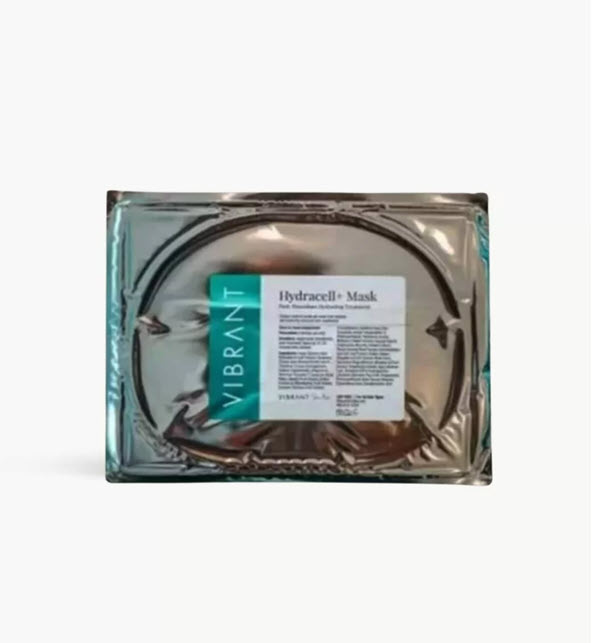
Step 6: Tone the Skin
You can use a gentle, non-alcoholic toner or a hydrating mist in your evening routine to help replenish moisture, remove residual impurities, and create a smoother base for serums and creams.
We recommend ZO Skin Health Calming Toner to soothe the skin, restore pH balance, and strengthen the barrier.
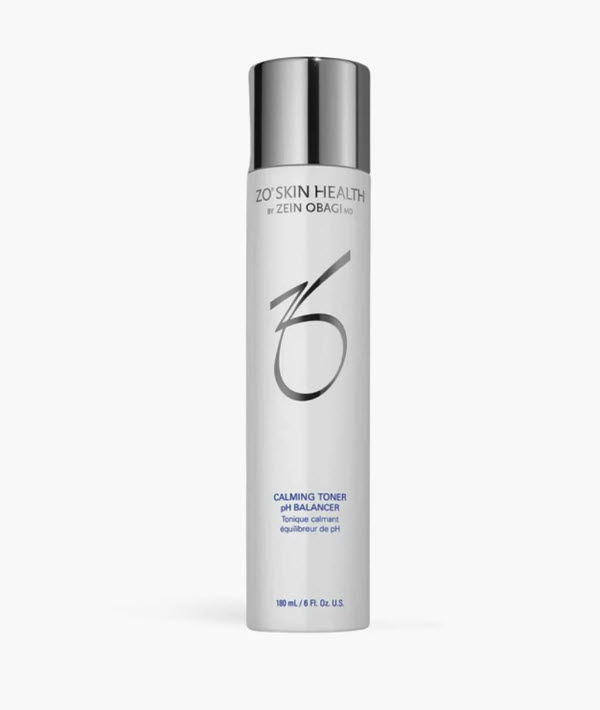
Step 7: Apply a Serum
At night, you can apply the same hydrating serum as in the morning. Also, consider adding a few other key players to boost your nighttime regimen:
- Vitamin A in the form of retinal or retinol, peptides, and vitamin B3 help stimulate the production of elastin and collagen to prevent fine lines and wrinkles.
- Colloidal silver decreases inflammation and helps calm the skin.
If you wish to address multiple skin issues, use different serums and apply them from the thinnest to the thickest. Water-based formulas go first, followed by oil-based ones.
Step 8: Use an Eye Cream
Choose an eye cream for sensitive skin with ingredients that help lock in moisture, support the barrier, reduce crepiness and puffiness, and restore elasticity around the delicate eye area.
Skinbetter Science EyeMax AlphaRet Overnight Cream contains a wrinkle-reducing retinoid, alpha hydroxy acid (AHA), niacinamide, glycolic acid, and other moisturizing agents to provide deep hydration, such as glycerin, ceramides, hyaluronic acid, and squalene.
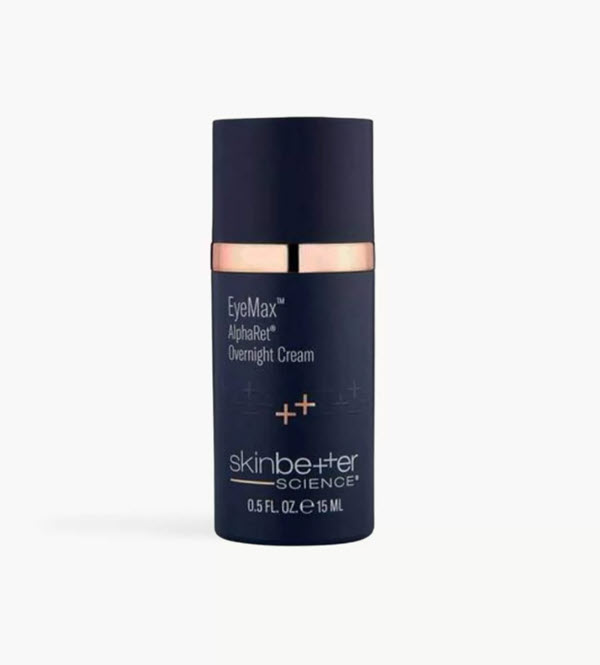
Step 9: Apply Face Oil
Face oils are a luxurious way to get deep hydration and reap the nutritional benefits of natural oils. Massage your face with your oil of choice for half an hour, or sleep with the facial oil. You will wake up feeling fresh and hydrated.
Thicker oils may leave a greasy trace, and some oils may change the effectiveness of your sunscreen, so be sure to test them first and apply them only at nighttime.
Step 10: Use Night Cream or Sleep Mask
Night creams focus on repairing any damage that may have happened during the day and should have a heavier consistency. An ingredient to look for in night moisturizers is vitamin A in the form of retinal or retinol, which speeds up cell turnover when combined with moisturizing agents.
Sleep masks are an optional step. They can contain rich moisturizing ingredients that help seal in other products and enhance cell repair. You can keep them on overnight and use them several times a week.
Note: Read the ultimate skincare guide for a comprehensive list of recommended practices.
When Should You See a Dermatologist?
Consult a dermatologist if your skin becomes excessively dry or you notice other changes, such as flakiness, itchiness, redness, brittle nails, or swelling.
These symptoms may indicate an allergy or an underlying skin condition like rosacea or eczema, which require medical attention.
Conclusion
A consistent skincare routine will significantly reduce dryness and help you achieve a healthy, dewy look. No product works overnight, so stick to your new skincare habits. Your patience will be rewarded with a visibly hydrated, healthier, and more vibrant complexion in a matter of weeks.
Contact our friendly Vibrant Skin Bar staff for more information about dry skin treatment solutions and products.


